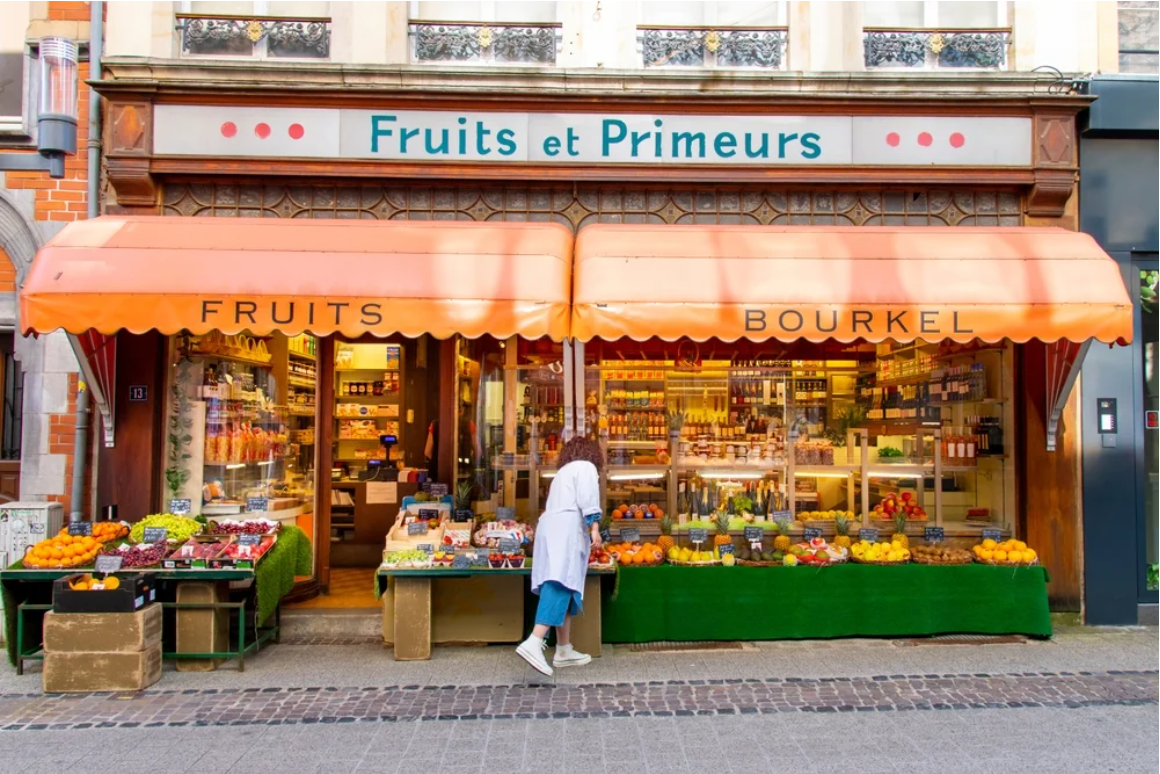Grocers are now required to use less plastic packaging in the fruit and vegetables sections.

A new requirement for grocers in
Luxembourg to reduce plastic packaging in the fruit and vegetables sections took effect on 30 June. However, store owners warn that the push for more biodegradable packaging may result in increased food waste.
Belgian-based grocery chain
Delhaize expressed concerns that the shelf-life of certain products will be reduced without plastic packaging, leading to a potential increase in food waste.
Luxembourg country director for Delhaize Cédric Gonnet stated that his company’s stores have been unable to find appropriate alternative packaging solutions as required by the law.
Consequently, customers visiting Delhaize stores may notice a scarcity of white pearl onions, butter beans and certain types of endives. While some endives will still be available for sale, the assortment will be significantly reduced.
EU pressure to reduce plastic waste and Luxembourg’s strict law
The European Union as a whole faces pressure to decrease plastic waste, but Luxembourg took a step further last year by banning single-use plastic packaging for fruits and vegetables.
The new regulations come into effect gradually, with the first stage commencing on Saturday. While fruits weighing more than 1.5 kg can still be wrapped in plastic, customers selecting individual items such as peppers or pears will need to use paper bags or other packaging alternatives.
Starting next year, larger supermarkets will be required to have their own recycling centres. By 2025, single-use packaging at festivals and packaging for food deliveries will need to be recyclable.
However, there are exceptions to the regulations for certain fruits, such as blueberries and raspberries, which would decay too quickly without plastic wrapping.
Fruits and vegetables that have been peeled, cut, or otherwise altered are exempt from the law’s scope.
Luxembourg’s environmental goals and high waste production
Luxembourg’s decision to implement stricter regulations stems from the country’s high waste production. According to 2018 data, Luxembourg produces three times as much waste per capita as neighbouring France and Belgium, making it the fourth-largest waste producer in the EU.
François Benoy, a Green party lawmaker who spearheaded the law, highlighted the importance of reducing plastic waste to protect Luxembourg’s resources and the environment.
As the new plastic packaging requirements take effect, concerns about increased food waste arise. While the aim is to reduce plastic consumption and promote environmental sustainability, store owners face challenges in finding suitable alternatives.
The impact on product shelf-life and assortment is expected to be felt in Delhaize stores.
Luxembourg’s plastic ban aligns with its focus on combatting high waste production and protecting the environment. However, further efforts may be necessary to balance the goals of reducing plastic waste and minimising food waste.
Source: PackagingGateway


